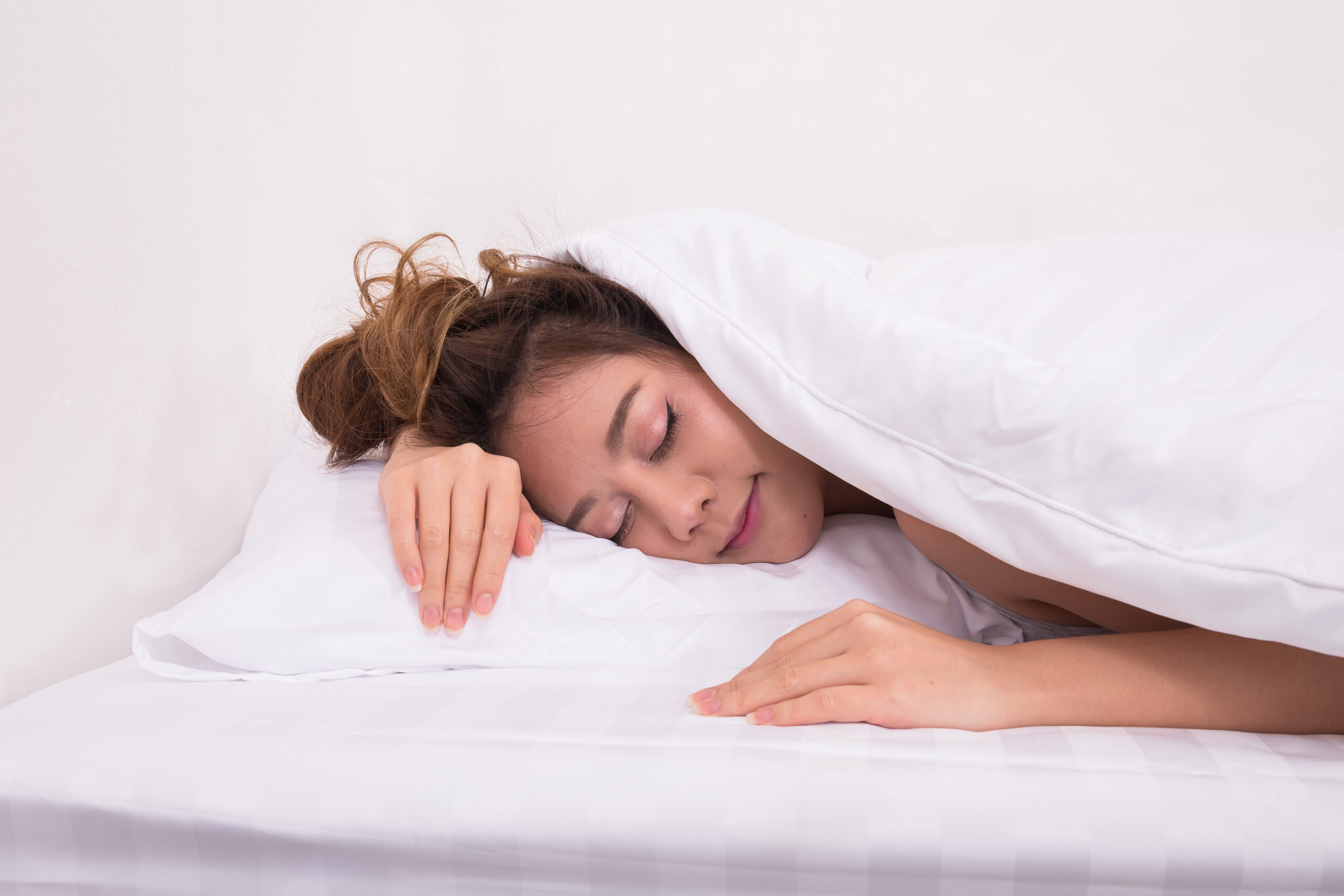Disclaimer: The information on this site is for informational purposes only and does not constitute medical advice. Please consult with a healthcare professional before making any adjustments to your routine.
If you’re lying awake at night, staring at the ceiling, you’re not alone. Many of us struggle with sleep problems, whether it’s falling asleep or staying asleep. Sleep is essential to your well-being, yet getting enough of it can be tricky. While there are lifestyle changes you can make, sometimes you need a little extra help. That’s where supplements for sleep come in.
But with so many options out there, how do you know what works? I’ve reviewed scientific studies to bring you five supplements that actually help improve sleep. Check out these links to my recommended brands: Melatonin, Magnesium, L-Theanine, Valerian Root, and Glycine.
Before we get to the supplements, we’ll talk about why your sleep might not be as restful as it could be.
Why Can’t I Sleep Well?
There are many reasons why sleep might be hard for you. Here are some of the most common things that can ruin your sleep quality:
- Stress and Anxiety: When you’re stressed, your body releases cortisol, which is also called the “stress hormone.” This makes you feel more alert and awake, which isn’t helpful when you’re trying to sleep. Anxiety can make it hard to relax and can keep your mind racing when you should be winding down.
- Poor Sleep Environment: Where you sleep matters. If your bedroom is too bright, noisy, or has an uncomfortable mattress, you’ll have trouble falling asleep and staying asleep. Even your sleep schedule can affect your sleep quality. If you go to bed at different times every night, your body doesn’t know when to sleep.
- Diet and Lifestyle Choices: Things you eat and drink can affect your sleep. Caffeine and sugar can keep you up, especially if you have them in the afternoon or evening. Alcohol might make you feel sleepy, but it actually disrupts your sleep cycle. Heavy meals close to bedtime can also make it hard to sleep.
- Blue Light Exposure: Blue light from screens, like your phone or computer, can mess with your body’s melatonin production. Melatonin is a hormone that helps regulate sleep, so when it’s not at the right levels, you may have trouble sleeping.
- Health Issues: Sometimes, sleep problems are a symptom of something else. Conditions like sleep apnea, chronic pain, or even hormone imbalances can make it hard to get good sleep. If you have ongoing sleep problems, it’s worth talking to a doctor.
Now, let’s get into the supplements that can help you sleep faster and better.
1. Melatonin
Melatonin is a natural hormone your body makes in response to darkness. It’s like your body’s way of saying, “Hey, it’s time to sleep.” You can take melatonin supplements to help with sleep, especially if you have jet lag, do shift work, or have trouble falling asleep.
How It Works: Melatonin tells your body that it’s nighttime, helping you relax and get ready for sleep.
The Science: A study in PLOS One showed that melatonin helps people fall asleep faster and sleep longer. Another study in the Journal of Pineal Research found it useful for people with insomnia. These studies found that melatonin doesn’t have serious side effects, making it a safe option for most people (Ferracioli-Oda et al., 2013; Srinivasan et al., 2012).
How Much to Take: Start with a low dose, around 0.5 to 1 mg, about 30 minutes before bed. You can increase it if needed, but it’s best to talk to a doctor before making any changes. It’s best practice to cycle one month on, one month off to ensure your body can still produce melatonin naturally.
Recommended Brand: Pure Encapsulations Melatonin-SR
2. Magnesium
Magnesium is a mineral that helps your body with many things, including sleep. It helps activate your parasympathetic nervous system, which helps your body relax.
How It Works: Magnesium helps increase GABA, a brain chemical that promotes relaxation. It also helps regulate melatonin, the sleep hormone.
The Science: A study published in the Journal of Research in Medical Sciences found that magnesium helped older adults with insomnia sleep better. Another study showed it can help reduce how long it takes to fall asleep and increase sleep duration (Abbasi et al., 2012; Wienecke & Gruenwald, 2015).
How Much to Take: The recommended dose is 200-400 mg, taken about 30 minutes before bed. Magnesium glycinate and citrate are good forms because your body absorbs them well.
Recommended Brand: MagTech Chelated Magnesium Complex
3. L-Theanine
L-theanine is an amino acid mostly found in green tea. It helps you relax without making you feel drowsy, so it’s a great choice if you’re dealing with anxiety and want to sleep better.
How It Works: L-theanine helps boost levels of GABA, dopamine, and serotonin—chemicals in your brain that make you feel relaxed and happy. It also lowers chemicals linked to stress and anxiety.
The Science: A study published in the Journal of Clinical Psychiatry found that L-theanine improved sleep quality in people with anxiety. Another study in Alternative Medicine Review showed that it helped people sleep better without causing grogginess the next day (Ritsner et al., 2011; Juneja et al., 1999).
How Much to Take: A common dose is 200 mg, taken about 30 minutes before bedtime.
Recommended Brand: Integrative Therapeutics L-Theanine
4. Valerian Root
Valerian root is an herbal remedy that’s been around for centuries. It helps you relax and fall asleep by increasing GABA levels in your brain, similar to anti-anxiety meds.
How It Works: Valerian root helps your brain hold onto GABA, which is a chemical that makes you feel calm and ready to sleep.
The Science: A review in The American Journal of Medicine found that valerian root can improve sleep without causing side effects. Another study in the Journal of Psychopharmacology showed it helped people fall asleep faster (Bent et al., 2006; Fernández-San-Martín et al., 2010).
How Much to Take: The recommended dose is 300-600 mg, taken about 30 minutes to two hours before bed.
Recommended Brand: Gaia Herbs Sleep Support Valerian Root
5. Glycine
Glycine is an amino acid that can help with sleep by lowering your body temperature, which is important for falling asleep.
How It Works: Glycine helps cool down your body, which tells your brain that it’s time to sleep. It also helps increase serotonin, which boosts sleep quality.
The Science: A study in the Journal of Pharmacological Sciences showed that glycine helped people sleep better and feel less tired the next day. Another study in Sleep and Biological Rhythms found that glycine helped people fall asleep faster and improved overall sleep efficiency (Yamadera et al., 2007; Inagawa et al., 2006).
How Much to Take: The usual dose is 3 grams, taken about 30 minutes before bed.
Recommended Brand: Pure Encapsulations Glycine
Wrapping It Up
If you’re thinking about trying any of these supplements for sleep, talk to a doctor first—especially if you’re taking other medications or have health issues. These supplements can make a big difference in your sleep, but remember they work best when you also practice good sleep habits. Check out the links in the introduction for
Which of these supplements for sleep sounds like a good fit for you? Have you tried any before? Share your thoughts in the comments below, and let’s help each other get the rest we deserve! I am an Integrative Health Coach, so let me know if you’d like more tips on getting better sleep!
Sources:
- Ferracioli-Oda, E., et al. (2013). Meta-analysis: Melatonin for the treatment of primary sleep disorders. PLOS One.
- Srinivasan, V., et al. (2012). Melatonin in sleep disorders. Journal of Pineal Research.
- Abbasi, B., et al. (2012). The effect of magnesium supplementation on primary insomnia in elderly: A double-blind placebo-controlled clinical trial. Journal of Research in Medical Sciences.
- Ritsner, M., et al. (2011). L-Theanine relieves anxiety in patients with schizophrenia and schizoaffective disorder: A double-blind, placebo-controlled trial. Journal of Clinical Psychiatry.
- Bent, S., et al. (2006). Valerian for sleep: A systematic review and meta-analysis. The American Journal of Medicine.
- Yamadera, W., et al. (2007). Glycine ingestion improves subjective sleep quality in human volunteers, correlating with polysomnographic changes. Journal of Pharmacological Sciences.
Let me know if you’d like more tips on getting better sleep!



